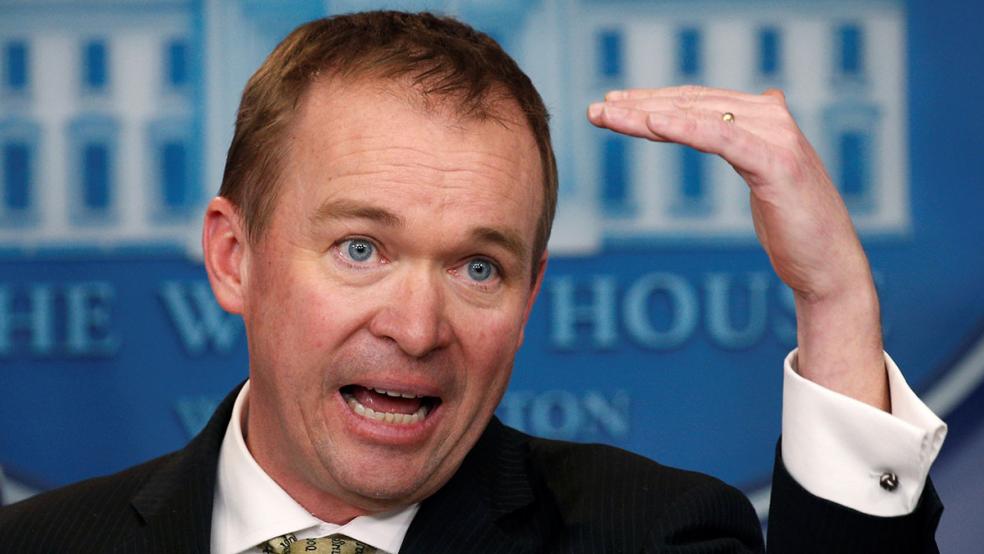The final wall of resistance to a “clean” increase of the federal debt ceiling, necessary to avoid a potentially catastrophic government default later this year, appears to have fallen. White House Office of Management and Budget Director Mick Mulvaney said on Wednesday that the Trump administration is now on board with the idea of increasing the Treasury Department’s borrowing limit without demanding spending cuts.
The announcement, which Mulvaney made on Thursday in a conversation with reporters, is significant. It means that any remaining hardliners in the House of Representatives or the Senate who are thinking about forcing a showdown over the debt ceiling will be without allies in either Republican congressional leadership or in the Trump administration. That makes their task all but impossible, legislatively speaking, short of mounting a talking filibuster in the Senate.
Related: Top GOP Conservative: We Won’t Play Around With the Debt Ceiling
One of the difficulties that Republicans were always going to face in the coming fight over the debt limit was the need to bring along at least eight Senate Democrats. Much of the discussion about the legislative process in the Senate in recent months has focused on the attempt to pass health care reform through a budget reconciliation package, which can be accomplished with a bare majority of 51 votes. But the debt ceiling increase can’t be included in a reconciliation package, meaning that the Republicans’ slim 52-member majority can’t get around a Democratic filibuster without those eight votes.
This set up some obvious tension between the Republican majorities in the House and Senate. The former could pass a highly partisan debt limit increase that took large bites out of Democratic fiscal priorities. However, a bill like that would stand no chance in the Senate.
Over the past several years, hardliners in the House have brought the country to the brink of default over the issue of increasing the borrowing limit, but they have typically been able to do so only with the implicit cooperation of other influential elements within the party.
This time, however, debt ceiling opponents like the members of the House Freedom Caucus appear to be out of allies. The Freedom Caucus’s own chairman, North Carolina Rep. Mark Meadows, said this week that he supports a debt ceiling increase without any “complicating” additions -- a position that is apparently held by members of the House and Senate Republican leadership as well.
Related: 3 Reasons the GOP Tax Reform Effort Could End in Tears
The debt limit is currently set just below $20 trillion, and any meaningful increase will cause it to surge past that particular milestone. The largest question now facing lawmakers appears to be the size of the increase, which will determine how much of a buffer they have between this and what will likely be the next increase in the debt ceiling.
There is a strong sentiment among many in Congress and within the White House to bite the bullet and simply raise the borrowing limit by enough to postpone any consideration of further increases until after the 2020 elections. That would require an increase of roughly $2.5 trillion. However, while some House conservatives may be willing to avoid a major debt ceiling fight this fall, it’s far from certain that they will want to abandon the tactic altogether for the next two and a half years.
Meadows, of the Freedom Caucus, said that he and his colleagues are more likely to support a more modest $1.5 trillion increase, because creating another deadline between now and 2020, “gives you two different bites of the apple to attach something to it.”





